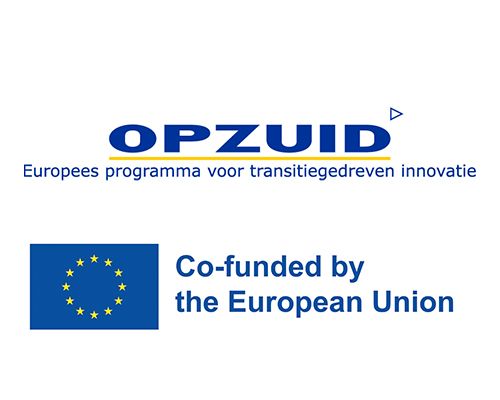Collaborations are the key to development
MERLN’s vision is based on sharing of knowledge, infrastructure and ambition. This vision is illustrated by our collaborations and partnerships. When researchers and entrepreneurs work side by side, an optimal environment is created to improve healthcare for patients and society at large. Read more about some of MERLN's exciting national and international collaborations below. Of course, this is just a small selection of the many academic and industrial partners we collaborate with.

National collaborations
Maastricht University Medical Center (MUMC+) and M4I
The Maastricht University Medical Center (MUMC+) is a collaboration between the Maastricht University Hospital and the Faculty of Health, Medicine & Life Sciences of Maastricht University. For MERLN, being a part of MUMC+ offers excellent opportunities to collaborate with researchers with complementary expertise, and with clinicians, whose input is valuable both in the early stages of development of regenerative therapies and in facilitating the translation of these findings from bench to bedside and back. Currently, MERLN has collaborative projects with the clinical MUMC+ departments Ophthalmology, Orthopedics, Surgery, Trauma surgery, Vascular surgery, Cardiothoracic surgery, Craniomaxillofacial surgery, Clinical genetics, Obstetrics and Gynecology, Pediatrics, Neuroscience, Nephrology, and Internal medicine. Moreover, close collaborations exist with the Maastricht MultiModal Molecular Imaging Institute M4I, with top-notch facilities and expertise in high-resolution cryo-electron microscopy and mass-imaging spectroscopy. MERLN is also in the process of establishing strategic research lines in collaboration with the departments of Neurosurgery and the EVA Center for Comprehensive Reproductive Care.
RegMed XB
RegMed XB stands for Regenerative Medicine Crossing Borders. It is a virtual institute of Dutch and Belgian public (universities and governments) and private (health foundations and companies) partners that will work together to develop regenerative medicine solutions to health challenges. RegMed XB collaborates on ambitious projects in the field of regenerative medicine. The partners in the collaboration are health foundations, universities (Leiden University, Utrecht University/Hubrecht Institute, Eindhoven University of Technology, and Maastricht University), regional governments, and companies.
Materials-Driven Regeneration (MDR)
The Research Center for Materials-Driven Regeneration (MDR) is a Dutch research partnership between the Eindhoven University of Technology, Maastricht University, Utrecht University, University Medical Center Utrecht and the Hubrecht Institute. It is financed by the Ministry of Education, Culture and Science of The Netherlands in the framework of the Gravitation program. This consortium brings together materials scientists, cell biologists, tissue engineers and medical scientists to jointly work on the regeneration of tissue and organ function with intelligent, life-like materials. With its multidisciplinary approach, the consortium aims to achieve major scientific breakthroughs in the field of regenerative medicine towards the curing of chronic diseases, like cardiovascular diseases and musculoskeletal disorders, and organ diseases such as kidney failure.
DSM
DSM's Biomedical technology division aims to meet clinical needs and has a strong focus on regenerative medicine applications. With DSM we tested a range of hybrid materials consisting of polymers and ceramics for orthopedic applications, using cell culture models. We also developed new polymers that can be used for the biofabrication of soft tissues.
Vacis
Vacis is a tissue engineering company focused on in situ tissue engineered blood vessels that provide novel therapeutic options for vascular surgery. MERLN has developed a biomedical device for vascular regeneration with Vacis that is currently in clinical trial evaluation.
Polyganics
Polyganics is an innovative medical technology company developing and delivering unique medical devices to improve surgical outcomes and patient recovery. MERLN has been developing 3D printed implants for skeletal regeneration with their team of experts.
OPZuid
The OPZuid project is a collaboration with NestEgg to develop their innovative solution to automate and standardize 3D cell culture. Together, the project aims to accelerate the integrated chain of pre-clinical and clinical research, making regenerative therapies more quickly available for the treatment of chronic diseases.
PolyVation and Corbion

International collaborations
Interreg-Biomat
The Interreg-Biomat project is a collaboration between Flanders (Belgium) and The Netherlands an innovative platform for high-throughput testing of biomaterials in a physiological environment on a chip is being developed. 3D microenvironments of (vascularised) bone and muscle are engineered on microfluidic chips, and used to test the performance of biomaterials, e.g., for hip implants, bone fillers, or stents.
Interreg-BONE
Interreg-BONE is an international collaboration of research institutes, business support organisations and industry organisations and SMEs, with the objective to accelerate the valorisation of cost-effective 3D smart implants fabricated by melt electrowriting (MEW) technology. BONE will further develop the MEW technology, expanding the palette of biomaterials that can be used with melt ESP, thus increasing the possibility of its adoption by more SME's and business support organisations and enabling a wider choice of biomaterial physical and chemical properties which can better mimic the tissue to be regenerated.
300MICRONS
300MICRONS, based in Karlsruhe, is a custom 3D cell system OEM manufacturer founded by MERLN's very own Stefan Giselbrecht and Roman Truckenmüller, who can provide solutions for a wide varity of applications. We have developed high-troughput 3D cell culture in vitro systems with them.
Aspect Biosystems
Aspect Biosystems uses microfluidics and 3D bioprinting to create living, human tissues for medical research, therapeutic discovery, and regenerative medicine products. With their help, MERLN is currently developing 3D in vitro models using bioprinting.
Nikon
Nikon's Microscope Solutions unit is focused on serving customers in research, biotech/pharma, the clinical laboratory, and education with industry leading microscope-based imaging solutions. MERLN acts as a demonstration lab where we collaborate with Nikon to further develop their imaging technology for regenerative medicine quality control applications.
Antleron
Antleron aims to fast track regenerative medicine innovations and personalized advanced therapies from lab to patient by co-creating end-to-end solutions to accelerate the engineering of advanced therapies and change health care. We collaborate with Antleron to develop 3D in vitro models for skeletal applications.
Ethris
Ethris develops messenger RNA as a new drug to treat patients with respiratory disorders. The company has developed a pipeline of Transcript Therapies for numerous human diseases and tissue healing. With their support, MERLN investigates the development of chemically modified mRNA for musculoskeletal tissue regeneration.















